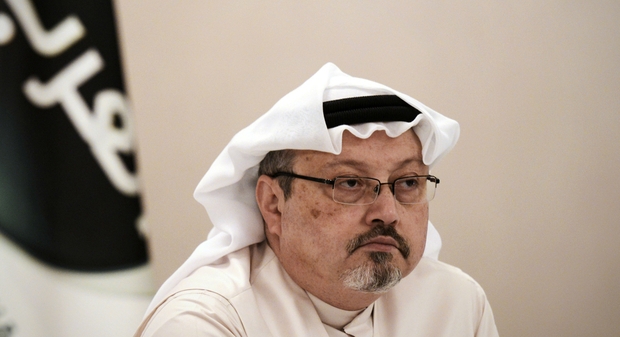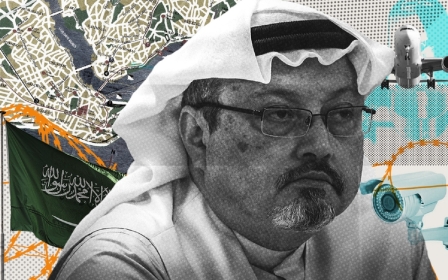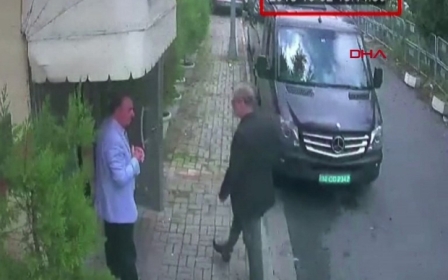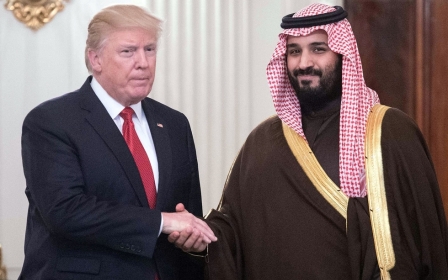How the Khashoggi case could forever change Saudi Arabia
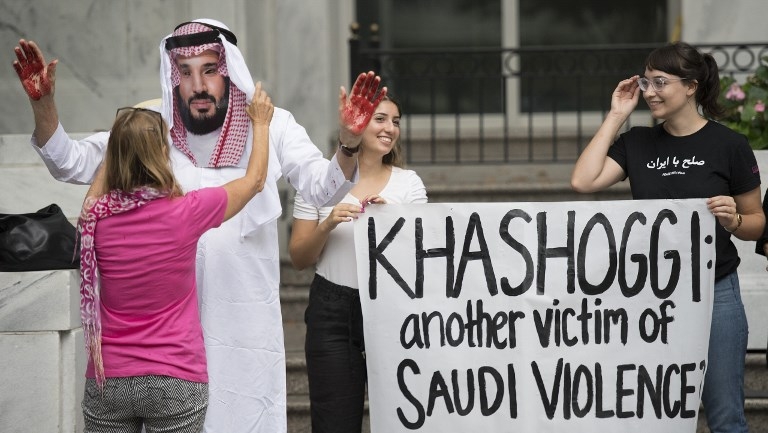
In the normal course of events, the disappearance of a Saudi journalist would be of no interest at all to the British government.
After all, Saudi Arabia has a long record of arranging the abduction and disappearance of its internal critics, while Britain has an equally long record of turning a blind eye.
It must be admitted that the apparent murder and dismemberment of Jamal Khashoggi is a uniquely horrible crime - but it is not on a different plane of moral horror to the many atrocities committed by the Saudi coalition in Yemen, where bombs have killed innocent children, and destroyed hospitals, markets and schools. Thousands of innocents have been killed by the Saudi-led coalition, aided and abetted by the British.
Turning a blind eye
No wonder Britain has played a significant role in protecting Crown Prince Mohammed bin Salman from international condemnation. So why not turn a blind eye to Khashoggi’s killing as well?
The British government would surely love to do exactly that. On this occasion, however, two new factors make it extremely difficult to do so.
Just imagine how Britain - and the US - would have reacted had Iran, rather than Saudi Arabia, allegedly murdered Khashoggi. The international row would be enormous; the condemnation deafening
Firstly, the circumstances surrounding Khashoggi’s death appear in many ways identical to the attempted murder of former Russian military intelligence officer Sergei Skripal and his daughter, Yulia, in Salisbury this past March. Moscow allegedly sent hitmen in at attempt to kill the Skripals, just as Riyadh allegedly sent hitmen to kill Khashoggi.
In the case of the Skripals, there was an uproar. British Prime Minister Theresa May immediately ordered a huge police investigation to hunt down the perpetrators, and the expulsion of 23 Russian diplomats from Britain swiftly followed. May made it plain that it was impossible to tolerate a foreign country carrying out murder on British streets.
Surely she would be outraged by comparable Saudi behaviour in Istanbul?
Official silence
Apparently not. The British prime minister has been as silent about Khashoggi as she was vocal about the Skripals.
Britain is happy to have Turkey and Saudi Arabia carry out their joint investigation. Yet, when Russia offered to cooperate over the Skripals, the British government responded with scorn and outrage. May is beginning to look shifty and hypocritical, at a time when she is fighting to save her career over the Brexit crisis.
Just imagine how Britain - and the US - would have reacted had Iran, rather than Saudi Arabia, allegedly murdered Khashoggi. The international row would be enormous; the condemnation deafening. There would already have been reprisals. We might not be far from war by now.
The truth is that Saudi Arabia can literally get away with murder as far as Britain and the US are concerned. This has long been the case, and with good reason: tens of thousands of highly skilled manufacturing jobs, many in marginal constituencies, depend on arms sales to the Saudis. We import Saudi oil. Britain and the US value the Saudi connection.
Symbolic response
This is called foreign policy realism, namely the belief that nations should act in their own interests regardless of moral considerations. Forget the rhetoric: this realism has always guided British policy and probably always will.
That is why I expect that the May government’s ultimate response to Khashoggi’s horrific killing will be symbolic rather than real. We may pull out of a conference or two. Foreign Secretary Jeremy Hunt will find a stronger form of words. But the arms sales will continue.
One very important element of the Saudi relationship, however, will likely change - which brings me to my second point.
Britain and other Western governments have invested a great deal in Mohammed bin Salman. In Washington, London and Paris, he’s seen as the great reformer and a great friend of the West. Recently, US President Donald Trump boasted, perhaps unwisely, about Bin Salman’s client status.
In the corridors of the Foreign Office, the State Department and the Quai d’Orsay, power brokers are today asking themselves whether they have made a terrible mistake. But never mind. What’s done can be undone. If Western powers can keep bin Salman in power, they can also kick him out.
What’s at stake?
As far as bin Salman is concerned, Khashoggi’s alleged killing was not just a crime - it was a mistake. Nor would it be the first of his mistakes. Washington and London may soon choose to pull the rug out from under their protege.
But that’s dangerous in itself. The next leader of Saudi Arabia may not be as friendly and well-disposed as bin Salman.
Saudi itself may be about to change very profoundly, and spin outside the control of the West
What is at stake now is no longer the fate of Khashoggi, nor even the fate of the crown prince. Saudi itself may be about to change very profoundly, and spin outside the control of the West.
- Peter Oborne won best commentary/blogging in 2017 and was named freelancer of the year in 2016 at the Online Media Awards for articles he wrote for Middle East Eye. He also was British Press Awards Columnist of the Year 2013. He resigned as chief political columnist of the Daily Telegraph in 2015. His books include The Triumph of the Political Class, The Rise of Political Lying, and Why the West is Wrong about Nuclear Iran.
The views expressed in this article belong to the author and do not necessarily reflect the editorial policy of Middle East Eye.
Photo: A demonstrator dressed as Saudi Crown Prince Mohammed bin Salman with blood on his hands protests with others outside the Saudi embassy in Washington on 8 October 2018, demanding justice for missing Saudi journalist Jamal Khashoggi (AFP)
New MEE newsletter: Jerusalem Dispatch
Sign up to get the latest insights and analysis on Israel-Palestine, alongside Turkey Unpacked and other MEE newsletters
Middle East Eye delivers independent and unrivalled coverage and analysis of the Middle East, North Africa and beyond. To learn more about republishing this content and the associated fees, please fill out this form. More about MEE can be found here.



